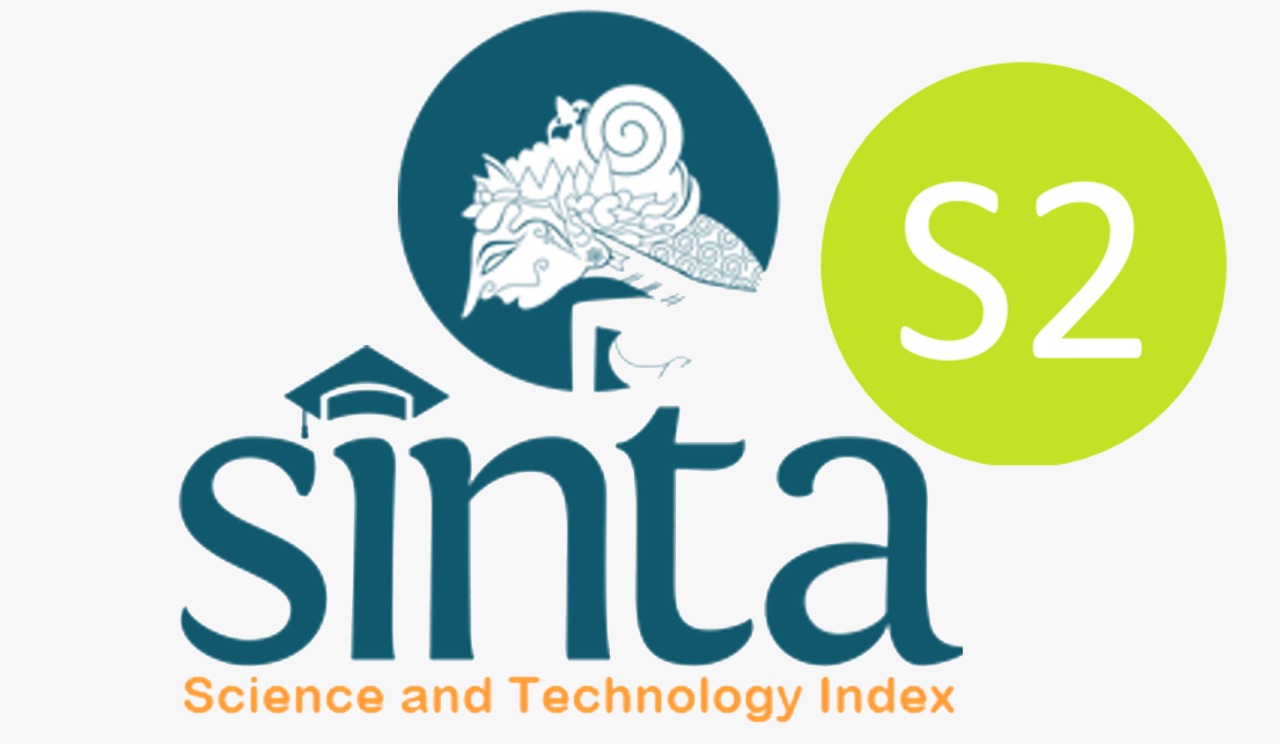PENGARUH MOTIVASI DAN STRES KERJA TERHADAP KINERJA DENGAN KETERLIBATAN KERJA SEBAGAI VARIABEL INTERVENING ( STUDI PADA KARYAWAN BAGIAN PRODUKSI ) PT. FITRAFOOD INTERNATIONAL
Downloads
Tujuan dari penelitian ini adalah untuk mengetahui adanya pengaruh motivasi dan stress kerja terhadap kinerja dengan keterlibatan kerja sebagai variable intervening (studi pada karyawan bagian produksi) PT. Fitra Food International yang berjumlah 102 orang. Metode pengumpulan data yang digunakan dalam penelitian ini membaca literature- literature dan penelitian sebelumnya dan penyebaran kuesioner. Data yang dianalisis dari hasil tersebut diolah dengan path analisis. Pengujian validitas dilakukan dengan bantuan SPSS 16.0 for windows dan model pengukuran yang diperoleh dari pengolahan data menggunakan AMOS yang menunjukkan hasil penelitian menunjukkan bahwa variable motivasi kerja berpengaruh signifikan terhadap keterlibatan kerja, kemudian variable stress kerja berpengaruh signifikan terhadap keterlibatan kerja, lalu variable keterlibatan kerja berpengaruh signifikan terhadap kinerja karyawan, kemudian variable motivasi kerja berpengaruh signifikan terhadap kinerja karyawan dan variable stress kerja berpengaruh signifikan kinerja karyawan.
Kata kunci: motivasi, stress kerja, kinerja, keterlibatan kerja
Ashford, S., Lee, C., & Bobko, P.1989. Content, Causes and Consequences of Job Insecurity: A theory-Based Measure and Substantive Test. Academy of Management Journal, 32, 803–829.
Behaghel, Luc., Moschion, Julie. 2012. "Skilled Labour Supply, IT-Based Technical Change and Job Instability” Institute for the Study of Labor.26 (13), pp.5-27.
Bemhardt, Annette; et all. 1999. "Trends in Job Instability and Wages for Young Adult Men", in Journal of Labor Economics (Chicago, IL), Vol. 17, No. 4 (Oct.), pp. 65-90.
Brooke, P.P., Russell, D.W., & Price, J.L. 1988. Discriminant Validation of Measures of Job Satisfaction, Job Involvement and Organization Commitment. Journal of Applied Psychology, 73, 139–145.
Brown, S.P. 1996. Ameta-Analysis and Review of Organizational Research on JobInvolvement. Psychological Bulletin, Vol.102, pp.235-55.
Cheloha, R. S., & Farr, J. L. 1980. Absenteeism, Job Involvement and Job Satisfaction in an Organizational Setting. Journal of Applied Psychology, 65, 467–473.
Cho, Joonmo., Keum, Jaehon. 2004. " Job Instability in the Korean Labour Market: Estimating the Effects of the 1997 Financial. International Labour Review, Vol. 143.
Chughtai, A. A. 2008. Impact of Job Involvement on In-Role Performance and Organizational Citizenship Behavior. Journal of Behavioral and Applied Management.
DeFrank, R. S., and J. M. Ivancevich. 1998. "Stress on the Job: An Executive Update”, Academy of Management Executive. 12 (3), pp. 55-67.
De Witte, H., 2005a. "Job Insecurity: Review of the International Literature on Definitions, Prevalence, Antecedents and Consequences”, South African Journal of Industrial Psychology, 31(4), pp. 1–6.
Diebold, Francis X.; Neumark, David; Polsky, Daniel. 1997. "Job Stability in the United States", in Journal of Labor Economics (Chicago, IL), Vol. 15, No. 2 (Apr.), pp. 206-235.
Djati, S. Pantja,et.all (2003), Jurnal Manajemen dan Kewirausahaan Vol 5 Maret 2003. UK Petra Surabaya.
Dolke, A.M., & Srivastara, P.K. (1988). Need Satisfaction, Job Involvement and Intrinsic Motivation: A Factor Analytic study. Indian Journal of Applied Psychology, 25, 13–17.
Donnelly, G.I. 1985. Organisasi (Perilaku, Struktur, Proses). Erlangga: Jakarta.
Emery CR, Barker KJ, 2007. "Effect of Commitment, Job Involvement and Teams on Customer Satisfaction and Profit”, Team Performance Manage, 13(3/4), pp. 90-101.
Farber, H., 2010, "Job Loss and the Decline in Job Security in the United States", in Labor in the New Economy, Katharine G. Abraham, James R. Spletzer, and Michael Harper (eds), pp. 223 – 262, University of Chicago Press.
Fathoni, Abdurrahmat. 2006. Organisasi dan Manajemen Sumber Daya Manusia. Jakarta: Rineka Cipta.
Fawzi, I.L. 2001. Stres Kerja Pada Programmer Komputer Di lingkungan Kerja Bank (Jurnal Pengembangan Kualitas SDM dari Perspektif PIO). Jakarta: Psikologi Industri dan Organisasi Fakultas Psikologi UI.
Fisher, R.T., 2001. "Role Stress, the Type A Behavior Pattern, and External Auditor Job Satisfaction and Performance”, Behavioral Research in Accounting, 13, pp. 143-69.
Frone, M. R., Russell, C. J., & Cooper, M. L. (1995). Job Stressors, job Involvement and Employee Health: A Test of Identity Theory. Journal of Occupational and Organizational Psychology, 68, 1 – 11.
Gechman, A. S., & Wiener, Y. (1975). Job Involvement and Satisfaction as Related to Mental Health and Personal Time Devoted to Work. Journal of Applied Psychology, 60, 521–523.
Gibson, James L., Ivancevich, Donnelly, Jr, 1995. Organisasi: Perilaku, Struktur, Proses. Edisi I. Bina Rupa Aksara, Jakarta.
Givord, P. and Maurin E., 2004, "Changes in Job Security and their Causes: An Empirical Analysis for France, 1982-2002”, European Economic Review, 48, pp. 595-615.
Gottschalk P. and R. Moffitt, "Changes in Job Instability and Insecurity Using Monthly Survey Data” Journal of Labor Economics, Vol. 17, No. 4, Part 2, pp. S91-S126.
Greenhalgh , L.and Z. Rosenblatt, 1984. "Job insecurity : toward conceptual clarity”, Academy of Management Review, Vol. 9, pp. 438-448.
Green, F., Felstead, A. and Burchell, B., 2000. "Job insecurity and the Difficulty of Regaining Employment: an Empirical Study of Unemployment Expectations”, Oxford Bulletin of Economics and Statistics, 62, pp. 855–883.
Hamalik, Oemar. 1993. Psychologi Manajemen. Tri Gendakarya, Bandung.
Hardjana, A.M, 1994. Konflik Di Tempat Kerja, Penerbit Kanisius, Yogyakarta.
Hasibuan, S.P. Malayu, 1994. Manajemen Sumber Daya Manusia, Dasar dan Kunci Keberhasilan, CV. Haji Masagung, Jakarta.
Huselid, M. A., & Day, N. E. (1991). Organizational Commitment, Job Involvement and Turnover: A substantive and Methodological Analysis. Journal of Applied Psychology, 76, 380–391.
Jacobson, D., 1991. "Toward a Theoretical Distinction Between the Stress Components of the Job Insecurity and Job Loss Experiences”, Research in the Sociology of Organizations, 9, pp. 1–19.
Jaeger, David A.; Stevens, Ann Huff. 1999. "Is Job Stability in the United States Falling? Reconciling Trends in the Current Population Survey and Panel Study of Income Dynamics", in Journal of Labor Economics (Chicago, IL), Vol. 17, No. 4 (Oct.),pp.1-28.
Johnson, C.D., Messe, L.A. and Crano, W.D., 1984. "Predicting kinerja of lowincome workers: the Work Opinion Questionnaire”, Personnel Psychology, 37, pp. 291–199.
Kahn W, 1990). Psychological conditions of personal engagement and disengagement at work”, Academy of Manage. J. 33, pp. 692-724. Kanungo RN, 1979. "The concepts of alienation and involvement revisited”, Psychological Bulletin, 86, pp. 119-138.
Kanungo, R. N. (1982). Measurement of job and work involvement. Journal of Applied Psychology, 67, 341 –349.
Lodahl T, Kejner M, 1965. "The definition and measurement of keterlibatan kerja”, Journal of Applied Psychology, 49(1), pp. 24-33.
Mangkunegara, A. Prabu. 2005. Evaluasi Kinerja SDM, Refika Aditama, Bandung.
Mangkunegara, Anwar Prabu. 2009. Manajemen Sumber Daya Manusia: 10 Perusahaan. Bandung: Remaja Rosdakarya.
Manulang, M. 2001. Manajemen Sumber Daya Manusi. Edisi 1. Yogyakarta: BBPE.
Martin TN, & Hafer JC. (1995). The multiplicative interaction effects of keterlibatan kerja and organizational commitment on the turnover intentions of full- and part-time employees. Journal of Vocational Behavior, 46: 310-331.
Mathis, Robert L dan Jackson, John H. Manajemen Sumber Daya Manusia. Edisi Pertama, Salemba: 2001.
Mauno, S., Kinnunen, U., Mäkikangas, A. and Nätti, J., 2005. "Psychological consequences of fixed-term employment and job insecurity among health care staff”, European Journal of Work and Organizational Psychology, 14, pp. 209–237.
Montgomery, D.C., Blodgett, J.G. and Barnes, J.H., 1996, "A model of financial securities sales persons' job stress”, The Journal of Services Marketing, Vol. 10 No. 3, pp. 21- 34.
Mudrack PE, 2004. "Keterlibatan kerja, obsessive-compulsive personality traits, and workaholic behavioral tendencies”. Journal of Organization Change Manage. 17(5), pp. 490-508.
Munandar, Anshar S. Psikologi Industri dan Organisasi. Edisi Pertama. UIP: 2001.
Probst, T.M., 2002. "The impact of job insecurity on employee work attitudes, job adaptation and, organizational withdrawal behaviors”. In Brett, J.M. and Drasgow. F. (eds.), The Psychology of Work: Theoretically Based Empirical Research. Hillsdale, NJ: Lawrence Erlbaum Associates.
Robbins, Stephen. P. 2008. Perilaku Organisasi. PT. Indeks Kelompok Gramedia: Jakarta.
Reisel, W.D., 2002. "Job insecurity revisited: reformulating the affect”, Journal of Behavioral and Applied Management, 4(1), pp. 87–91.
Srivastava, S. K. (2005). Organizational Behaviour and Management. New Delhi: Sarup & Sons.
Sverke, M. and Goslinga, S., 2003. "The consequences of job insecurity for employers and unions: exit, voice and loyalty”, Economic and Industrial Democracy, 24(2), pp.241–270.
Sverke, M., Hellgren, J., Näswall, K., Chirumbolo, A., De Witte, H. & Goslinga, S., 2004. Job Insecurity and Union Membership: European Unions in the Wake of Flexible Production. Brussels: P.I.E.-Peter Lang.
The journal allows the author to hold the copyright of the article without restrictions.
The journal allows the author(s) to retain publishing rights without restrictions
The legal formal aspect of journal publication accessibility refers to Creative Commons Attribution Share-Alike (CC BY-SA).
Jurnal Ekonomi dan Bisnis Airlangga (JEBA) is licensed under a Creative Commons Attribution-ShareAlike 4.0 International License

















